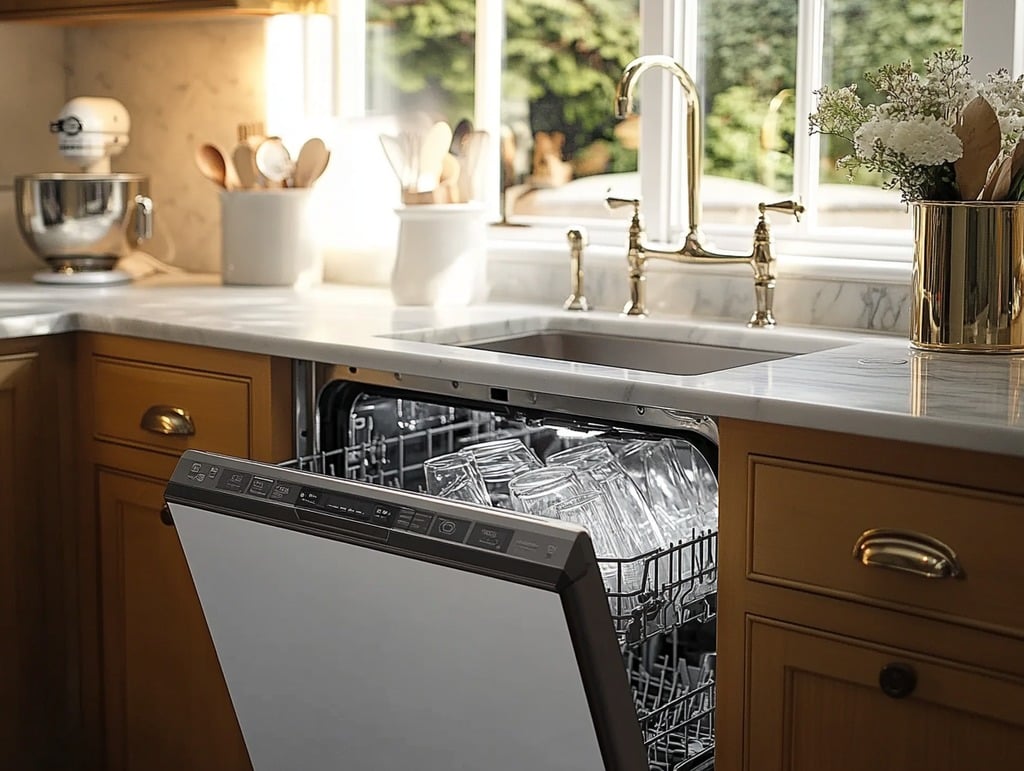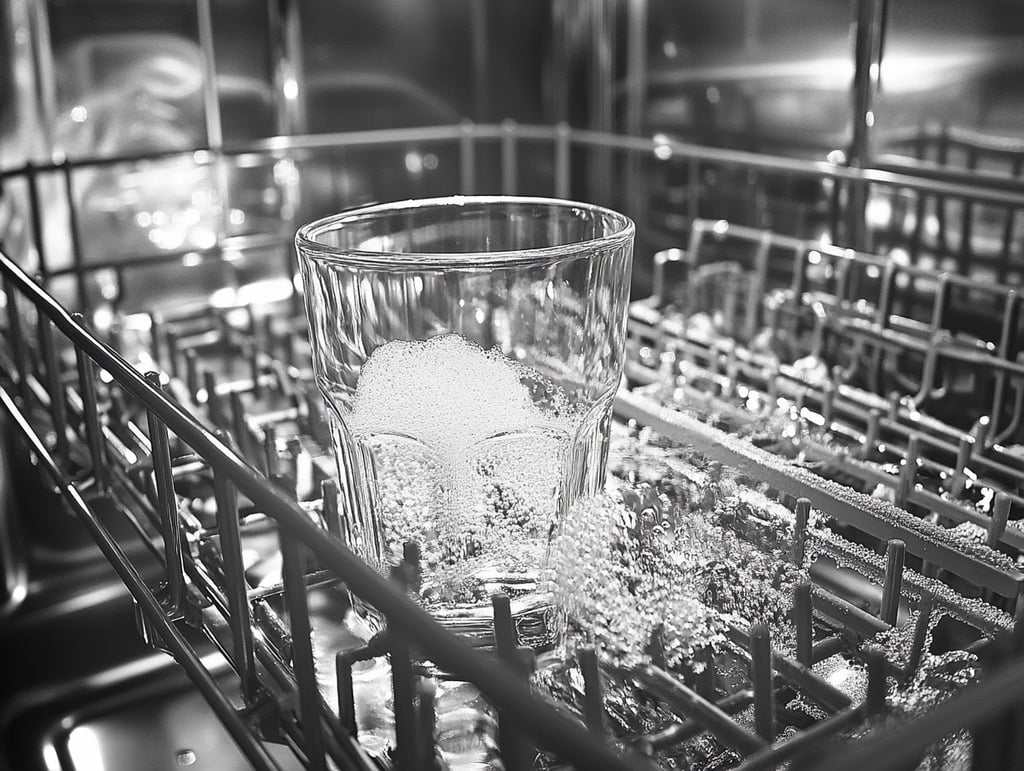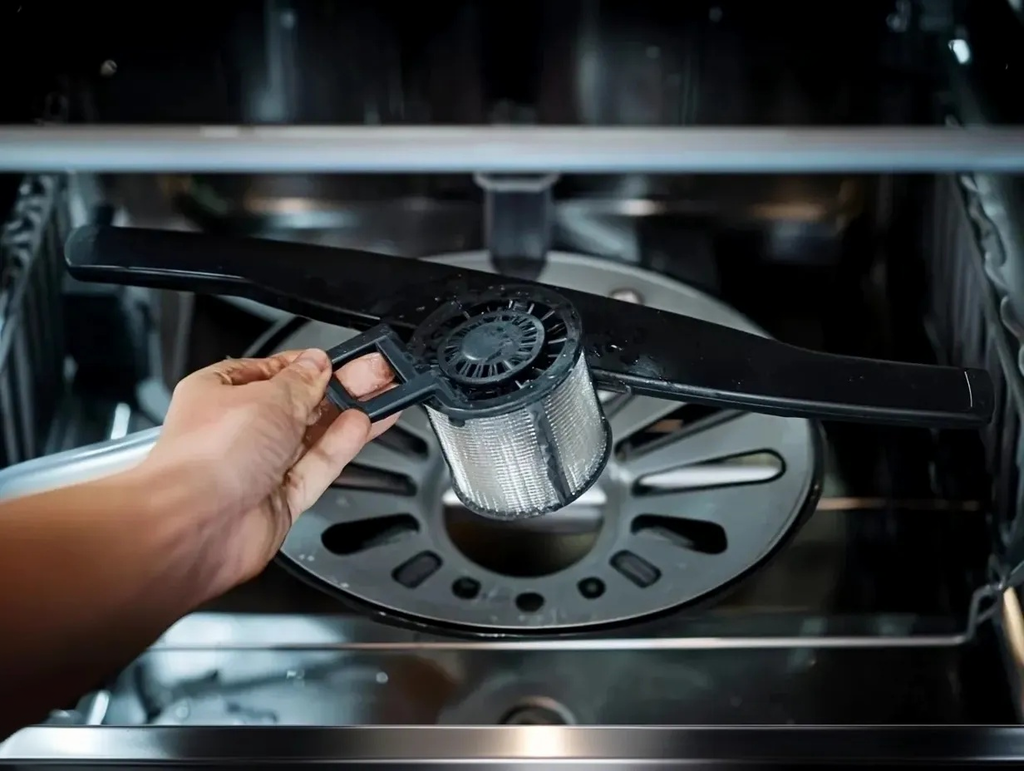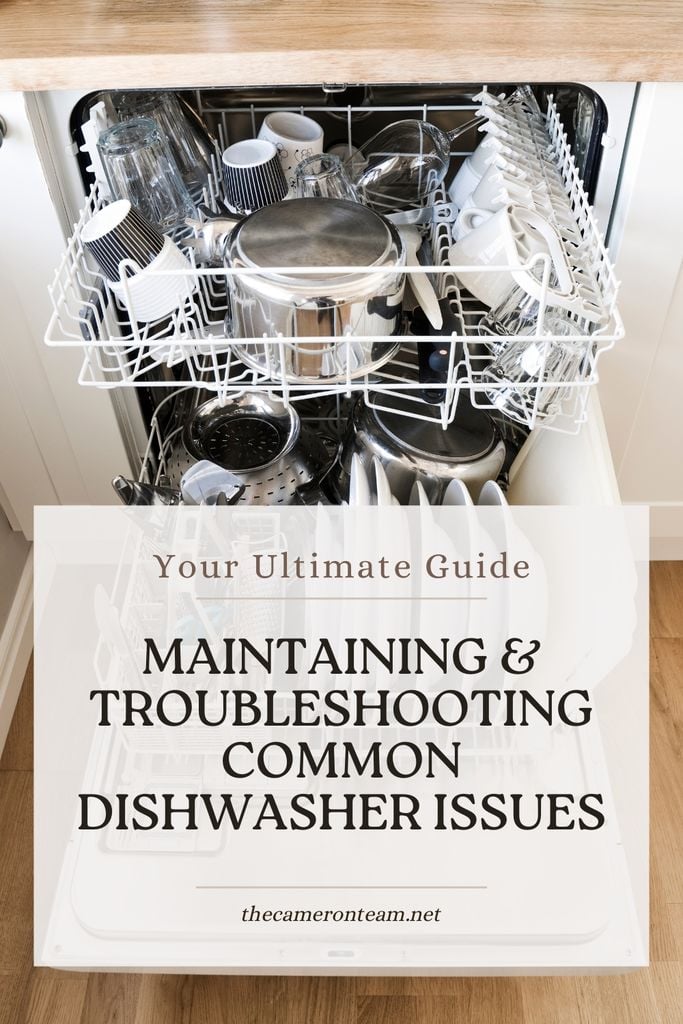Keeping a dishwasher in top shape doesn’t have to be complicated, but it does require a little know-how. A well-maintained dishwasher can last longer, clean better, and save you from costly repairs down the line. In this guide, we’ll cover practical maintenance tips and solutions to some of the most common dishwasher problems.
Why Dishwasher Maintenance Matters
Regular maintenance can prevent minor issues from snowballing into major repairs. By taking a few preventative steps, you can ensure your dishwasher operates smoothly for years. Plus, maintaining your dishwasher saves water and energy, making it more environmentally friendly.
Benefits of Regular Dishwasher Maintenance
- Improves Cleaning Efficiency: A clean, well-maintained dishwasher works better at removing food and stains.
- Extends Appliance Lifespan: Preventative maintenance can add years to your dishwasher’s life.
- Reduces Repairs and Costs: Catching problems early minimizes the need for professional repairs.
- Saves Energy and Water: A well-functioning dishwasher uses less power and water, which saves on utility bills.
Essential Dishwasher Maintenance Tips
1. Clean the Filter Regularly
Most modern dishwashers have a removable filter located at the bottom. This filter catches food particles and prevents them from clogging the drain. Over time, food debris builds up, affecting cleaning performance.
- How to Clean: Remove the filter, rinse it under hot water, and use a soft brush to remove any stuck-on debris. Aim to clean it every month.
2. Inspect and Clean Spray Arms
Spray arms distribute water evenly to clean dishes, but food particles and hard water deposits can clog the small holes.
- How to Clean: Remove the spray arms and use a toothpick or a small brush to unclog the holes. Rinse thoroughly before reattaching.
3. Wipe Down Door Seals and Gaskets
The rubber gasket around the door prevents water from leaking out. However, it can accumulate grime over time, which may lead to leaks or poor sealing.
- How to Clean: Use a damp cloth to wipe down the gasket every few weeks. A mixture of vinegar and water works well for stubborn grime.
4. Run a Monthly Cleaning Cycle
Running an empty cycle with a dishwasher cleaner or a cup of vinegar helps eliminate residue buildup.
- How to Clean: Place a cup of white vinegar on the top rack, run a hot-water cycle, then sprinkle baking soda on the bottom and run another cycle if there’s a persistent smell.
5. Use the Right Detergent
Make sure you’re using dishwasher-safe detergent and avoid overloading it. Using too much detergent can lead to residue on your dishes and even clogging within the machine.
Troubleshooting Common Dishwasher Problems
Even with regular maintenance, dishwashers can experience issues. Here’s a rundown of some of the most common problems and how to fix them.
Problem #1: Dishwasher Not Cleaning Dishes Properly
If you notice food residue left on dishes after a cycle, here’s what might be causing the problem:
- Solution:
- Check for Blockages: Ensure nothing is blocking the spray arms or the filter.
- Clean the Spray Arms: If the arms are clogged, they won’t distribute water evenly.
- Use the Right Detergent and Load Properly: Overloading or using the wrong detergent can lead to poor cleaning.
Problem #2: Dishwasher Not Draining
A dishwasher that won’t drain often has a clog in the drain line or filter.
- Solution:
- Clean the Filter: Make sure the filter at the bottom isn’t clogged.
- Check the Drain Hose: Ensure there’s no kink or blockage in the hose leading to the sink drain.
- Inspect the Garbage Disposal: If your dishwasher drains into your garbage disposal, a clog there could affect drainage.
Problem #3: Dishwasher Leaking
Leaks can be frustrating and are usually caused by worn-out seals or improper loading.
- Solution:
- Check Door Gasket: Inspect the rubber seal around the door. If it’s cracked or worn, you may need to replace it.
- Avoid Overloading: Dishes loaded too tightly may press against the door, causing leaks.
- Look for Cracks in the Tub: Sometimes, the dishwasher’s tub can develop cracks, especially in older models.
Problem #4: Dishwasher Making Unusual Noises
Dishwashers aren’t silent, but grinding, banging, or rattling sounds indicate a problem.
- Solution:
- Inspect the Spray Arm: If the spray arm is hitting dishes, rearrange your load.
- Check for Loose Parts: Look for loose screws or other parts that may be rattling.
- Check the Motor: If the noise is loud and persistent, it could be a motor issue. In this case, consult a professional.
Problem #5: Dishwasher Smells Bad
A lingering odor in your dishwasher can be unpleasant and usually stems from trapped food particles or mold growth.
- Solution:
- Clean the Filter and Drain: Food trapped in the filter or drain can cause odors.
- Run a Vinegar Rinse: As mentioned in maintenance, running a cycle with vinegar can help eliminate smells.
- Leave the Door Open After Cycles: This allows the dishwasher to air out, reducing moisture and preventing mold growth.
Preventative Tips to Avoid Future Issues
- Run Hot Water Before Starting: Run the kitchen sink until the water is hot before starting the dishwasher. This helps the dishwasher get hot water immediately, improving cleaning performance.
- Don’t Overload the Machine: Overloading prevents proper water flow and can damage the appliance over time.
- Scrape, Don’t Rinse: While you don’t need to rinse dishes thoroughly, scraping off large food pieces prevents clogs and keeps your dishwasher clean.
- Replace Parts When Needed: Door seals, spray arms, and filters may need to be replaced as they wear down.
When to Call a Professional
Sometimes, a problem may require expert assistance. If you’ve tried these troubleshooting steps and the issue persists, it might be time to bring in a professional. Problems like a faulty heating element, electronic control failure, or persistent leaks are best handled by someone with specialized knowledge.
FAQs
Q. How often should I clean my dishwasher’s filter?
A. Ideally, clean the filter once a month to keep your dishwasher running efficiently.
Q. Can I use regular dish soap in my dishwasher?
A. No, using regular dish soap can create excess suds and cause leaks. Always use dishwasher-safe detergent.
Q. Why does my dishwasher leave a white residue on dishes?
A. White residue is often caused by hard water. Consider using a rinse aid or running a vinegar cycle to remove deposits.
Q. How long does a typical dishwasher last?
A. With proper maintenance, most dishwashers can last between 10-15 years.
Wrapping Up
A dishwasher is a workhorse in the kitchen, and with just a bit of TLC, it can keep your dishes sparkling for years. By following these maintenance tips and troubleshooting common issues, you’ll be well-equipped to handle minor hiccups and keep your appliance running smoothly. Remember, if a problem seems beyond your expertise, don’t hesitate to call in a professional—it could save you from a bigger headache down the road.







